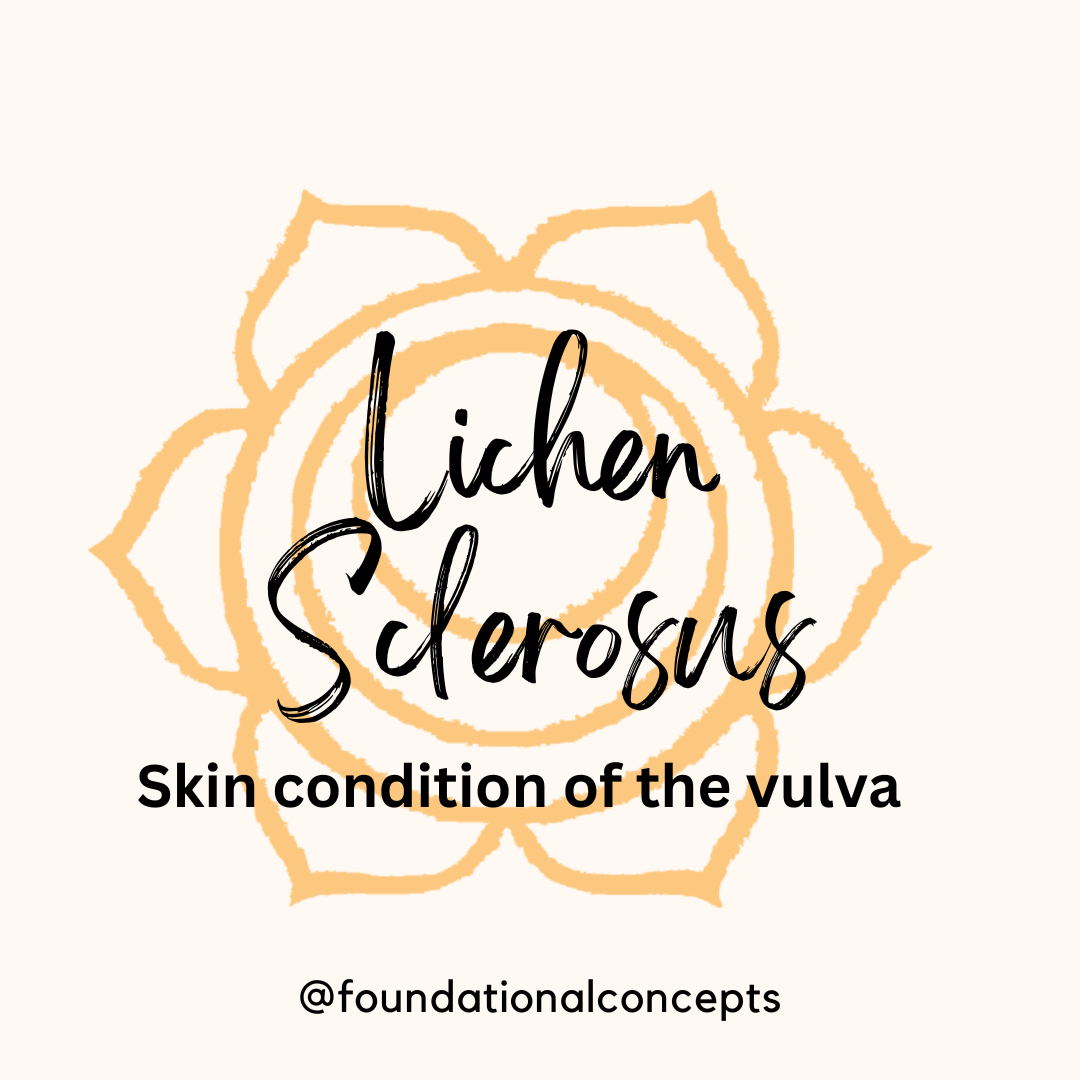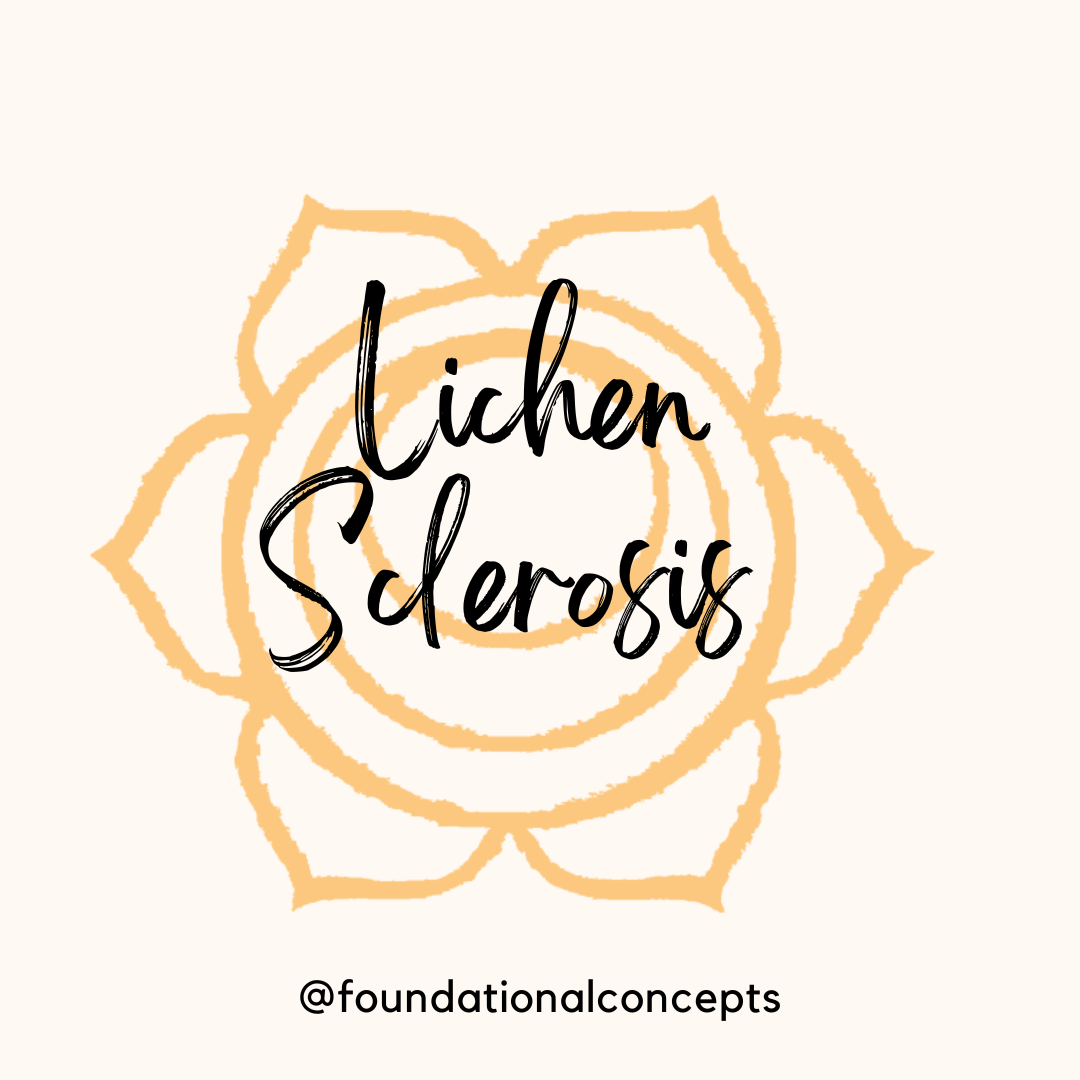Itching “down there” is a common complaint but one that we shouldn't ignore. When we…

Take Care Down There: Lichen sclerosus symptoms and management.
Lichens…What??? I thought that grows on rocks, not my vagina. Lichen sclerosus is a skin condition that comes from the term lichen sclerosus et atrophicus (LSA), which literally means white-spot disease. It is diagnosed by visual inspection of the skin of the vulvar area (genitals) and/or a biopsy if indicated. This is often diagnosed by a Gynecologist or Dermatologist. But can many times be found by your pelvic floor physical therapist.
Lichens sclerosus causes painful and itchy patches of thinning skin. It can present with white shiny patches. Most commonly It affects the genital and anal areas. It can also show up on the back, shoulders, upper arms and breasts. You can have Lichen sclerosus without symptoms, but typically symptoms are:
- Smooth, shiny or discolored skin
- Blotchy, wrinkled skin
- Itching
- Soreness/burning
- Easily bruised
- Thin/Fragile skin
- Changes in urine stream (weakness or odd direction)
- Bleeding, open sores
- Pain with intercourse
As a specialist in Pelvic Floor Physical Therapy, I often see women with vaginal pain and/or pain with sexual intercourse. During a pelvic exam, we examine your vulvar tissues. Occasionally I find some white patches of thinning skin that are cause for concern. This leads to a recommendation to see a gynecologist or dermatologist for an assessment of the skin. Because there is a higher risk of vulvar cancer in women with Lichens sclerosus, it is important to see a doctor right away to rule out cancer.
The dry skin patches form scar tissue, which get tight and make intercourse, clothing, wiping and pelvic examinations painful. It can set up a cycle of pain that leads to muscle guarding during intercourse, which then leads to more pain and ear/worry. This cycle can lead to distress with intimacy and in relationships. Over time, if not treated, this skin condition can lead to more scar tissue. This is where a team of providers come into play.
The standard medical treatment for Lichen sclerosus is a topical ointment that is prescribed by your physician. Pelvic floor physical therapy can help manage scar tissue by stretching it gently and teaching you how to stretch it yourself. If you have not been able to have intercourse due to the condition, we may also train you how to work with dilators to get you back to intercourse in a gentle, self-administered process. We educate you on a custom set of pelvic floor exercises to increase blood flow to the area, promoting tissue health, and helping muscles that have been inhibited by pain and/or scar tissue tension to function at their best. When addressed, it is very manageable, but is often a life long condition. Some self care approaches to management are:
- managing urine leaking to keep tissues dry and clean
- wearing white cotton undergarments, or no undergarments!
- avoiding tight clothing in the vulvar area
- using a dilator for tissue stretching (as prescribed by your PT)
- Rinse and pat dry after urination
- Use a good moisturizer and lubricant (see our previous blog HERE)
The exact cause of Lichen sclerosus is unknown. Post Menopausal women are at higher risk. It is thought to be a combination of genetics, an overactive autoimmune system, and previous insult to the skin. It is not contagious, so it cannot be spread to others via sexual contact.
You should not ignore itching, burning or painful tissues “down there”. It is important to get the painful Symptoms in your vagina checked out and not wait. Your long term health may depend on it, and getting back to normal activities without discomfort may as well. Click HERE to schedule with one of our specialists in pelvic floor physical therapy.
-Marla Jacquinot, PT


